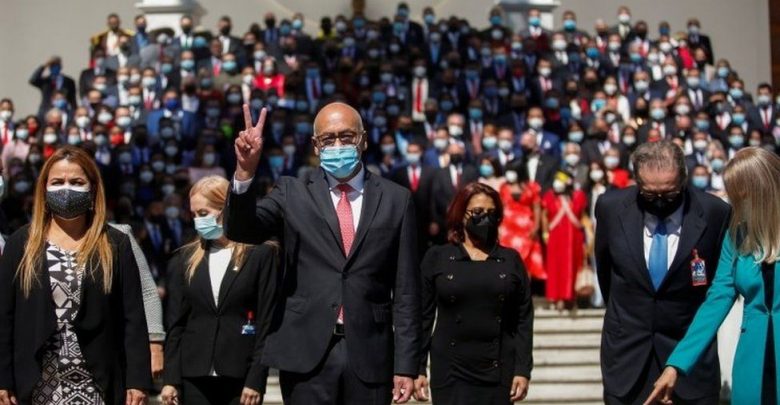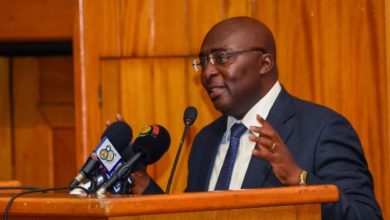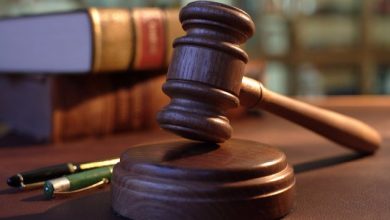InternationalNews
Venezuela crisis: Maduro loyalists take control of parliament

In Venezuela, a new National Assembly has been sworn in which is dominated by lawmakers from President Nicolás Maduro’s United Socialist Party (PSUV).
Until now, the National Assembly had been the only major institution not controlled by the PSUV party.
The coalition led by his party won 256 out of 277 seats in the election held in December, which most opposition candidates boycotted.
The opposition has dismissed the poll as neither free nor fair.
The opposition leader, Juan Guaidó, held his own swearing-in ceremony for MPs from the old congress.
He announced on 26 December that the old assembly would continue meeting and legislating.
Venezuela has been mired in a political crisis which came to a head in January 2019 when Mr Guaidó declared himself interim president with the backing of the opposition-controlled legislative body.
Mr Guaidó argued that the 2018 presidential election which had returned Mr Maduro to a second term in office had not been valid as many opposition politicians had been jailed or banned from running for office.
He declared that because Mr Maduro had not been elected fairly, the presidency was therefore vacant. He invoked a clause in the constitution which states that in such cases the leader of the National Assembly (in this case, him) becomes interim president.
Mr Guaidó was recognised as Venezuela’s legitimate leader by more than 50 countries, including the US, the UK, the EU and most Latin American nations.
But Mr Maduro remained in control of the security forces, the electoral authorities and much of the judiciary. He also retained the support of Russia and China, two powerful allies.
Attempts by Mr Guaidó to get the security forces to switch sides failed and Mr Maduro remained in control of the country from his office in the presidential palace.
Two parliaments
Nevertheless, the opposition-controlled National Assembly was a thorn in Mr Maduro’s side. Under Venezuela’s constitution, the government needs the assembly’s approval to ratify international treaties and to sign major contracts with foreign companies.
Mr Maduro therefore made regaining control of the National Assembly his government’s main priority.
Most of the opposition decided to boycott the legislative election on 6 December arguing that taking part would give legitimacy to polls which were widely dismissed as neither free nor fair.
Instead, the opposition-controlled National Assembly voted to extend its legislative period “until democracy is restored”, arguing that they could not hand over power to lawmakers who they say are not legitimate.
On Tuesday they also held a swearing-in ceremony in a separate location in which they re-elected Mr Guaidó as the Speaker.
Source:Fiilafmonline/BBC


